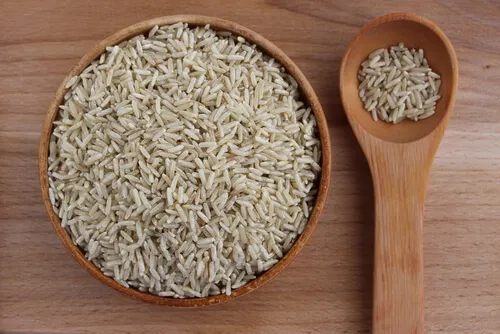Why are Gluten-free Diets Harmful?


Reviewed and approved by the nutritionist Saúl Sánchez Arias
Are you following a gluten-free diet without a recommendation from your doctor, just because you heard it’s the new trend? You should know that if you do not have a gluten intolerance, following this type of diet can severely affect your health.
This diet has become popular because, by eliminating certain types of carbohydrates, people think that you will lose weight. If that’s your goal, however, you should choose another type of diet or talk to a nutritionist.
If you think that you might have a gluten intolerance, see your doctor to make sure. Otherwise, you may experience the following problems associated with gluten-free diets.
Vitamin and mineral deficiencies: gluten-free diets
Gluten-free diets can cause mineral and vitamin deficiencies because your intestines will have trouble absorbing nutrients. This is a common problem when you stop eating foods with gluten in them. So, it’s common for doctors to suggest a supplement to cover these deficiencies .
However, when you follow this type of diet without supervision, it’s common to ignore this requirement. The most common nutritional deficiencies are iron and vitamin B.
If the deficiency is severe, you may have trouble performing your normal activities. The solution is to eat foods that are filled with the different nutrients that you would otherwise not get on a gluten-free diet.
Stomach and intestinal tract issues
Another risk of gluten-free diets is that you will be constipated a lot. This is because foods with gluten are also usually high in fiber.
Remember that fiber helps to release your bowels. If you already have constipation problems, avoid this kind of diet unless it is necessary.
In case you can’t avoid it, remember to add in other high fiber foods:
- Nuts
- Seeds
- Oats
- Quinoa
- Corn
In addition to experiencing annoying constipation symptoms, you’ll begin to gain weight. This is caused by the accumulation of toxins in your intestine. The good news is that once you start consuming fiber again, you will lose that weight.
Read more: Gluten in the Vegetarian Diet: What You Should Know
You could consume high levels of arsenic
People who follow gluten-free diets often use rice as a substitute. This is because it is very cheap, easy to prepare and very versatile. The problem is that rice may contain small amounts of arsenic which, when accumulated, can cause heart problems.

When you have a gluten intolerance, your doctor will usually give you recommendations on what foods to eat and in what quantity. If you follow this diet and don’t have an intolerance, you will probably exceed those amounts. If you have no other choice, remember to include a variety of whole grains in your diet.
Rice should be only one part, not most, of your diet.
Your wallet won’t be happy
Gluten-free diets require a large investment. Although there are many gluten-free products, the vast majority cost much more than the normal versions.
That’s because this kind of food requires more research and investment. Remember that these products are part of a medical treatment so they won’t be cheap.
The best option if you want to lose weight without hurting your wallet, is to eat natural products. That is, organize your weekly menu thinking about foods that are easy to buy and that are in season. And, you can get these products in your local market.
You will be eating a large amount of processed foods
Gluten-free diets are usually based on foods that have to go through several processes to eliminate gluten. This results in several factors:
- You will eat a lot of sweeteners. Because the food is processed so much, some of it loses its ability to stay fresh. To keep them in good condition, brands have to add conservatives.
- You’ll be adding too much fat to your diet. Since processed foods lose some of their properties, they need added fats to restore their softness and freshness. Because of that, following a gluten-free diet could cause heart problems, fatty liver and diabetes, among other issues.
Are you following a gluten-free diet without having talked to your doctor first? Don’t do it anymore. As you can see, there are a lot of risks associated with it.
All cited sources were thoroughly reviewed by our team to ensure their quality, reliability, currency, and validity. The bibliography of this article was considered reliable and of academic or scientific accuracy.
- Vici G., Belli L., Biondi M., Polzonetti V., Gluten free diet and nutrient deficiencies: a review. Clin Nutr, 2016. 35 (6): 1236-1241.
- Emmanuel A., Mattace Raso F., Neri MC., Petersen KU., et al., Constipation in older people: a consensus statement. Int J Clin Pract, 2017.
This text is provided for informational purposes only and does not replace consultation with a professional. If in doubt, consult your specialist.








